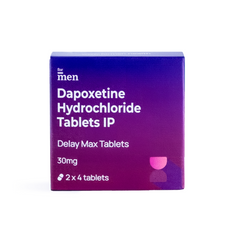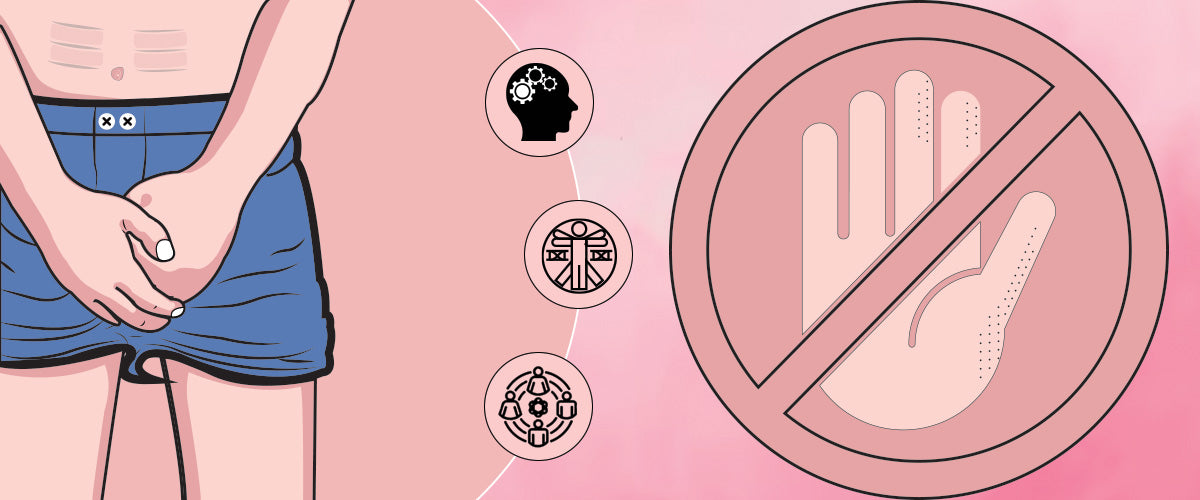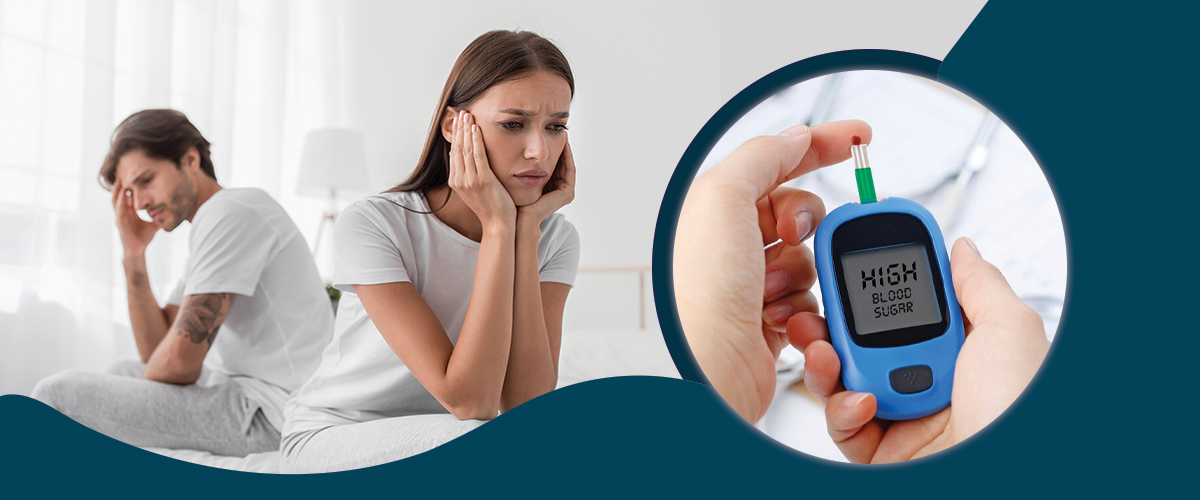How Does Masturbation Affect Testosterone Levels?
Evidence Based
All the information in this blog post is accurate, trustworthy, scientifically based and has been written and fact-checked by our experts and doctors.
Our licensed nutritionists and dietitians are committed to being objective, unbiased and honest, presenting all sides of the argument.
This article includes scientific references in brackets, which are clickable links to research papers from reputable academic organizations.

Masturbation is a natural and common activity that often raises questions regarding its impact on various aspects of health, particularly testosterone levels. As a crucial hormone, testosterone influences many bodily functions, from muscle mass to mood. This article delves into the relationship between masturbation and testosterone.
What is the Role of Testosterone?
Testosterone is a crucial androgenic hormone primarily produced in men's testes and, to a lesser extent, in women's ovaries. It plays a vital role in developing male reproductive tissues and maintaining secondary sexual characteristics such as muscle and bone mass, as well as body hair. Additionally, testosterone impacts mood, energy levels, and overall well-being. It supports protein synthesis, essential for muscle growth and repair, and influences cognitive functions, cardiovascular health, and metabolic processes.
What Happens During Masturbation?
Masturbation involves self-stimulation of the genitals, leading to sexual arousal and orgasm. This activity increases heart rate, blood pressure, and sensory perception. The nervous system becomes highly active, releasing hormones and neurotransmitters that promote pleasure and relaxation.
Hormonal Responses to Sexual Activity
- Dopamine: Known as the "feel-good" hormone, dopamine is released during arousal and orgasm, enhancing pleasure.
- Oxytocin: Often referred to as the "love hormone," oxytocin promotes relaxation and bonding.
- Prolactin: Released after orgasm, prolactin triggers the refractory period, temporarily reducing sexual arousal.
- Cortisol: Cortisol levels temporarily rise during sexual activity but return to normal soon after.
These hormonal responses are natural and can vary among individuals.
Masturbation and Testosterone Levels
Short-Term Effects on Testosterone
Research indicates that masturbation might cause a transient increase in testosterone levels immediately following the activity. However, these spikes are usually short-lived and return to baseline levels shortly after.
Long-Term Effects on Testosterone
The long-term effects of masturbation on testosterone levels remain a subject of debate. Most studies suggest that regular masturbation does not significantly affect baseline testosterone levels. Individual variations exist, but a clear consensus points to negligible long-term impact.
For instance, a study published in the Journal of Sexual Medicine found no significant difference in testosterone levels between men who abstained from ejaculation for three weeks and those who did not. This suggests that while short-term fluctuations may occur, long-term testosterone levels remain relatively stable regardless of masturbation frequency.
Common Myths and Misconceptions
Does Masturbation Lower Testosterone?
A widespread myth is that masturbation lowers testosterone levels. However, scientific evidence refutes this claim, showing no substantial decrease in testosterone due to masturbation. The temporary fluctuations that occur during and immediately after masturbation do not lead to long-term reductions in testosterone levels.
The NoFap Movement: Claims vs. Science
The NoFap movement promotes abstinence from masturbation, asserting that it can increase testosterone levels and overall vitality. While some people claim to experience increased energy and a better mood, scientific research does not consistently support these assertions. The benefits reported by participants are often attributed to psychological factors rather than actual changes in testosterone levels.
A study in the Journal of Urology found that men who abstained from ejaculation for three weeks showed no significant increase in testosterone compared to those who did not abstain. This indicates that the perceived benefits of NoFap are likely due to placebo effects and improved mental focus rather than actual hormonal changes.
Psychological Factors
Stress and Anxiety Impact
Stress and anxiety can significantly affect testosterone levels. Chronic stress elevates cortisol, which can negatively impact testosterone production. Engaging in sexual activities like masturbation can help reduce stress, potentially benefiting overall hormonal balance.
The placebo effect
Belief in the benefits or harms of masturbation can influence an individual’s perception of their well-being. This placebo effect can make one feel better or worse about their testosterone levels, regardless of actual physiological changes. The psychological impact of beliefs and expectations highlights the importance of a balanced and informed approach to sexual health.
Required Changes in Lifestyle Habits to Improve Testosterone Levels
Adopting healthy lifestyle habits can significantly influence and maintain healthy testosterone levels. Here are a few recommendations for better health.
Regular Physical Activity
Regular physical activity, especially strength training, boosts testosterone levels. Exercise stimulates the release of growth hormone and testosterone, promoting muscle growth and fat loss. However, overtraining can have the opposite effect, highlighting the need for balanced exercise routines.
A study published in the Journal of Clinical Endocrinology & Metabolism found that men who engaged in regular resistance training had higher testosterone levels compared to sedentary individuals. This underscores the importance of physical activity in maintaining optimal hormonal health.
Balanced Diets
A balanced diet rich in vitamins and minerals supports healthy testosterone levels. Foods high in zinc, vitamin D, and omega-3 fatty acids are particularly beneficial. For example, zinc-rich foods like oysters and pumpkin seeds help maintain healthy testosterone production, while vitamin D from sunlight or supplements supports overall hormone balance.
Avoid Harmful Foods
Limit foods high in sugars, unhealthy fats, and processed ingredients. Such foods can negatively affect hormonal balance and overall health.
Adequate Sleep
Ensure you get seven to nine hours of sleep per night and maintain a consistent sleep schedule by going to bed and waking up at the same times each day.
Avoid Alcohol and Smoking
Avoid alcohol and quit smoking to support overall hormonal health.
Incorporating these habits can help you take control of your hormonal health and maintain optimal testosterone levels.
[ Also Read: How to Increase Testosterone Levels Naturally? ]
Treatments to Increase Testosterone
Low testosterone can significantly impact your health. Your healthcare provider may recommend testosterone replacement therapy (TRT) to boost fertility, restore sexual function, and treat bone diseases such as osteoporosis.
Testosterone Replacement Therapy Options
1. Oral Pills: Medications like ForMen Testoboost Capsules are highly recommended for their pure, effective ingredients and are trusted by over 10,000 Indian men.
These doctor-formulated capsules boost hormone levels, performance, energy, mood, and immunity. Take two capsules post-meal with milk or water, preferably in the morning and evening.
2. Transdermal Patches: Provide a steady release of testosterone when worn on the skin.
3. Testosterone Gels: Applied to the skin, these gels allow testosterone to be absorbed into the bloodstream.
4. Injections: Administered via intramuscular or subcutaneous injections.
5. Testosterone Pellets: These are implanted under the skin and release testosterone slowly over time.
These options can be tailored to individual needs to manage and treat low testosterone levels effectively.
Potential Risks and Considerations
Over-Masturbation Concerns
While masturbation is generally safe, excessive masturbation can lead to physical irritation, such as chafing or soreness. It may also interfere with daily activities and responsibilities if it becomes compulsive. Maintaining a balanced approach is crucial to avoiding these potential issues.
Balancing Healthy Sexual Habits
Maintaining a balance is key. Incorporating masturbation into a healthy lifestyle without letting it dominate one's daily routine is essential for overall well-being. Setting boundaries and ensuring that masturbation does not interfere with personal, professional, or social responsibilities can help maintain this balance.
Comparing Masturbation with Sexual Intercourse
Differences in Hormonal Response
Sexual intercourse typically results in more significant hormonal changes compared to masturbation. This is due to the added physical and emotional intimacy involved in intercourse, which can lead to more profound releases of oxytocin and other hormones.
A study in the Archives of Sexual Behavior found that sexual intercourse led to higher levels of oxytocin and prolactin compared to masturbation. These differences highlight the unique physiological and psychological benefits of partnered sexual activity.
Psychological Differences
The psychological effects of intercourse, including emotional bonding and intimacy, differ from those experienced during masturbation. Intercourse often fosters a sense of connection and emotional satisfaction that can enhance overall well-being and relationship quality.
[ Also Read: Does Masturbation Cause Memory Loss? ]
Understanding the relationship between masturbation and testosterone levels involves recognising the complex interplay of physiological and psychological factors. While short-term fluctuations in testosterone may occur during and immediately after masturbation, the long-term impact on testosterone levels is minimal. By maintaining a balanced approach to sexual health and adopting healthy lifestyle habits, individuals can support their hormonal health and overall well-being.
Also Read the Articles:
- Does Masturbation Cause Dandruff & Hairfall?
- Does Masturbation Cause Weight Loss?
- Does Masturbation Cause Premature Ejaculation?
| *** This Article is Written by Swetha Ramala. |
Disclaimer: The information provided on this page is not a substitute for professional medical advice, diagnosis, or treatment. If you have any questions or concerns about your health, please talk to a healthcare professional.

 Evidence Based
Evidence Based







Leave a comment